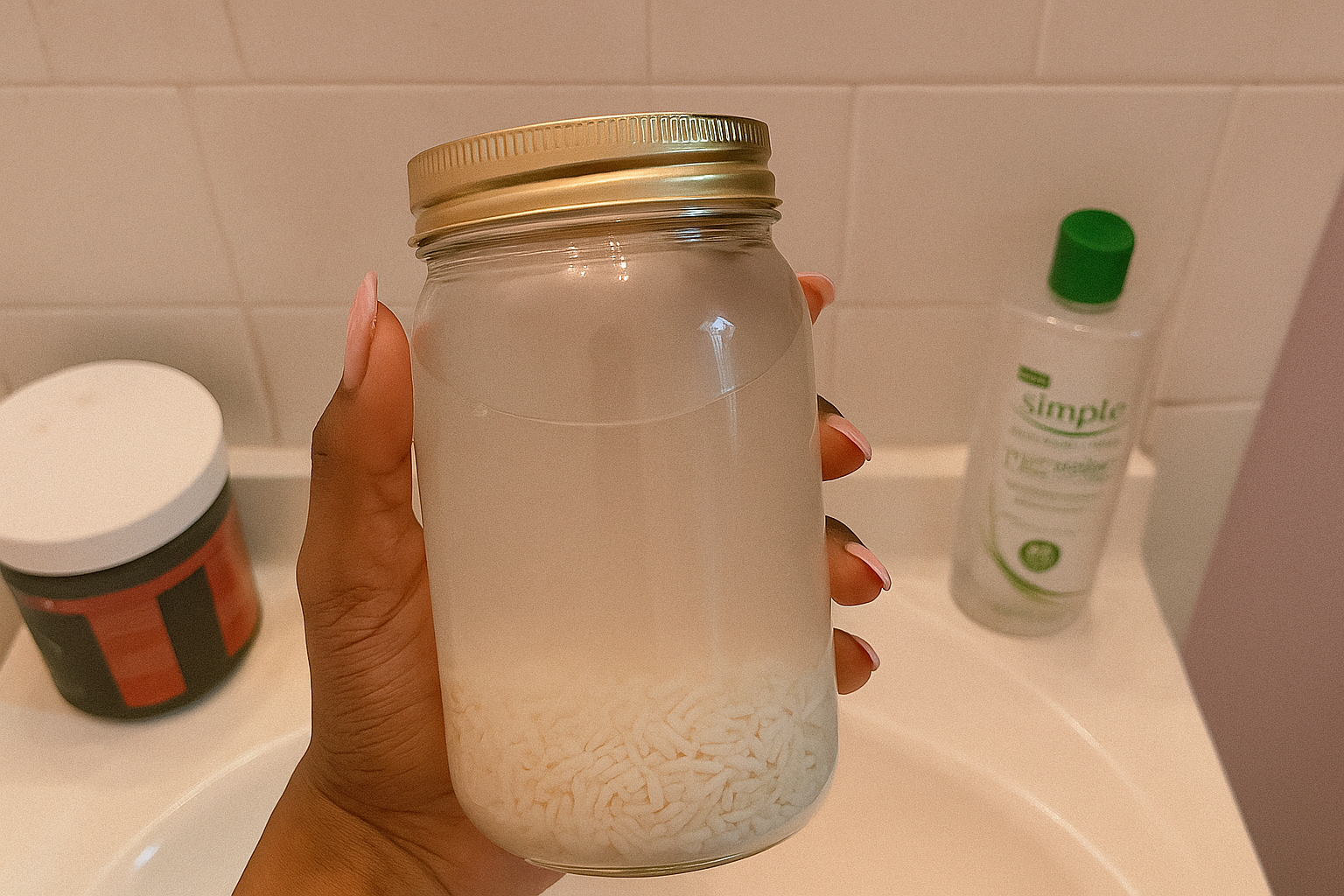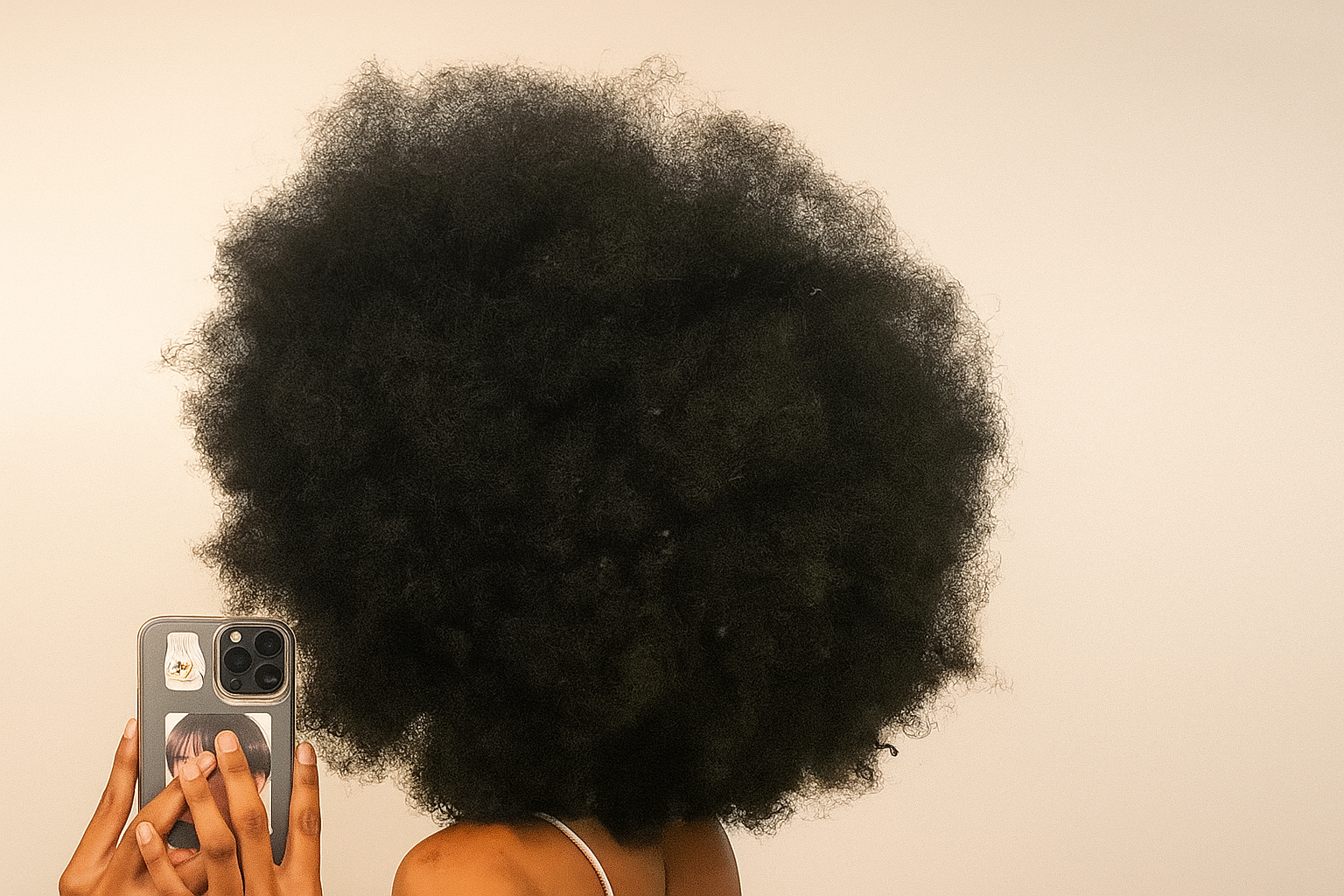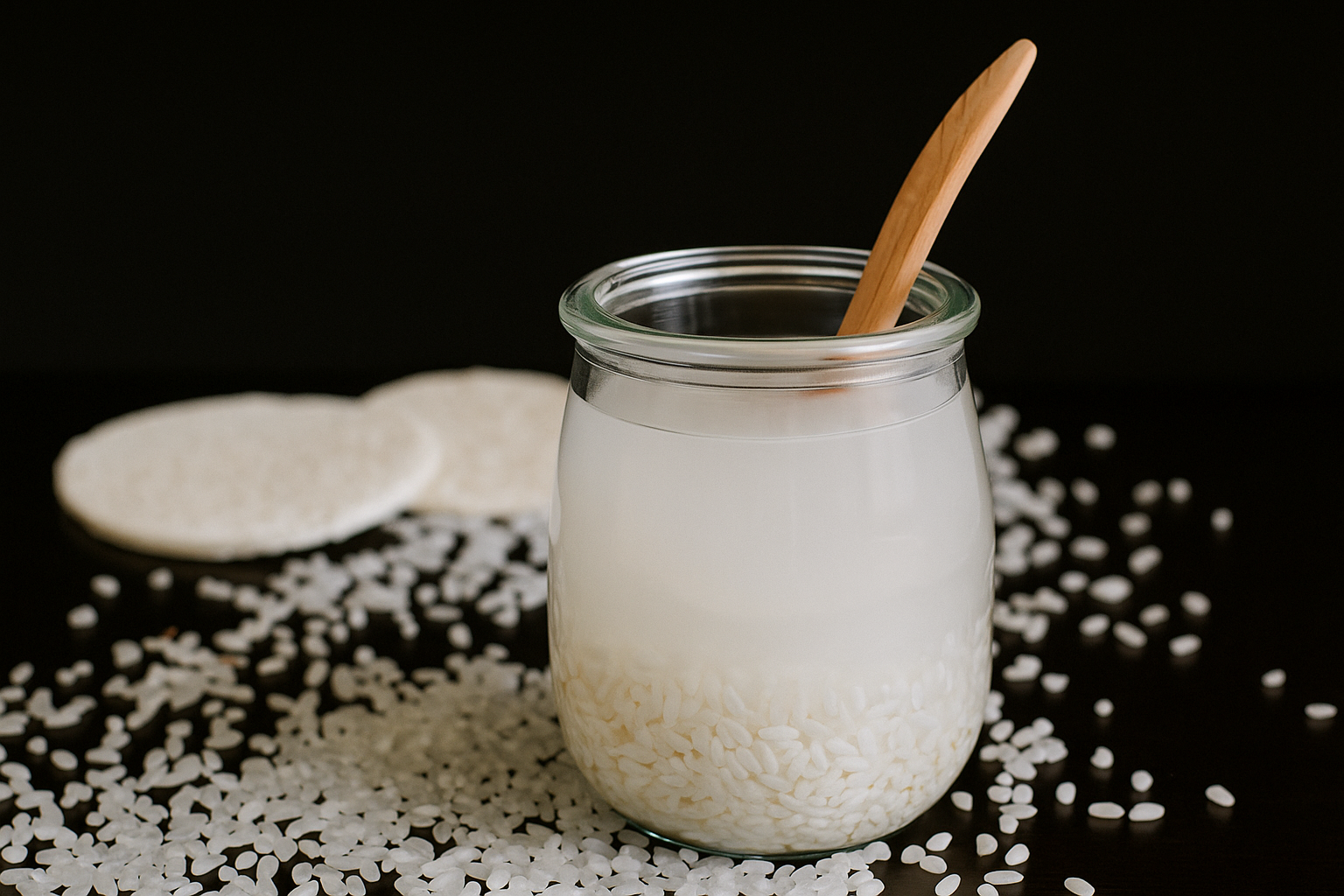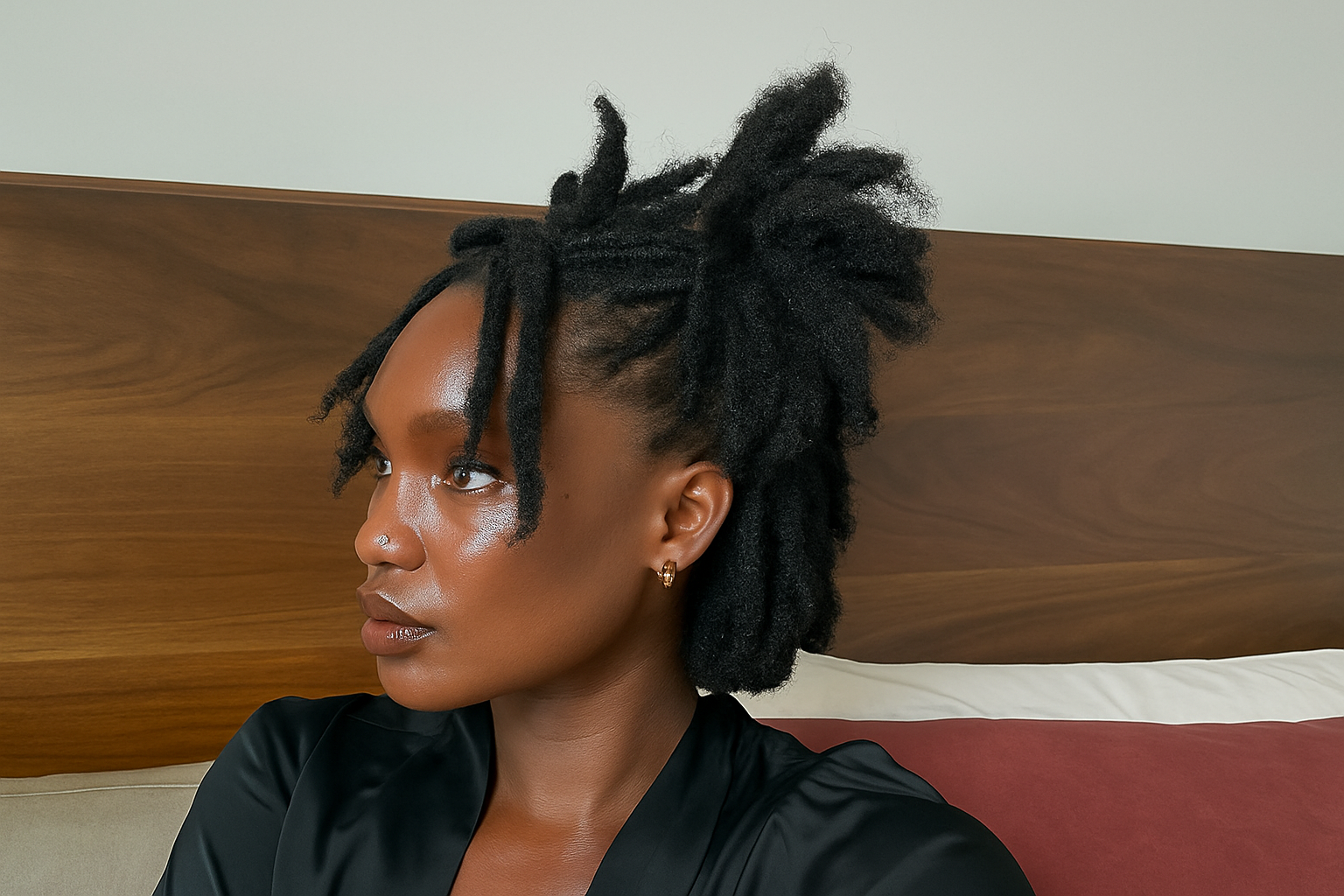We've all seen the hype, videos of women rinsing their hair with cloudy rice water, promising rapid growth, stronger strands, and magical hair transformations. From TikTok to YouTube, rice water has entered the natural hair spotlight. But suppose you've got natural African hair or locs like I do. In that case, you probably wonder, "Does this actually work for our hair?" Let's break it down. There is no fluff or filter, just a clear-eyed look at this popular trend.
First Off, What Even Is Rice Water?
Rice water is exactly what it sounds like: the leftover water after rinsing, soaking, or boiling rice. It's packed with nutrients like amino acids, vitamins like B and E, and inositol, which is said to strengthen hair and reduce breakage. For centuries, women in parts of Asia have used it as part of their beauty rituals, especially to maintain long, shiny hair. It's an age-old tradition, but traditions don't always translate perfectly, especially regarding hair types.

The African Hair Context: Texture Matters
Let's be honest, our hair is beautifully unique. Kinky, coily textures (especially 4C hair) need moisture, gentleness, and products that understand the assignment. While rice water can strengthen the hair shaft, it also contains protein, and here's where the problem can start. Many of us are protein sensitive. Too much protein can leave our hair feeling brittle, dry, or stiff. What works on looser curl patterns may not have the same effect on tighter textures. The truth? Rice water can help, but it must be approached carefully and moderately.

What About My Locs? Will Rice Water Help or Hurt?
For those of us with locs, the conversation shifts a bit. Rice water is a liquid, yes, but it's not always lightweight. If you've ever made it at home, you'll notice it has a starchy feel. That starch can easily hide in your locs and lead to buildup if you're not thoroughly rinsing. Does that mean it's off-limits? Not necessarily. If you want to experiment:
- Strain the rice water well (you don't want particles getting stuck in your locs)
- Dilute it
- Rinse it out completely
- And avoid using it frequently. Think of it more like an occasional rinse, something to try once every few weeks, not a weekly routine.

What Are the Benefits People Are Talking About?
Rice water gets so much attention because it:
- Improves hair strength (thanks to nutrients like amino acids and inositol)
- Has a shinier appearance
- Reduces breakage over time
- For some, causes noticeable hair growth
But again, results vary. It depends on your hair's porosity, current health, and how your scalp responds. Let's be real; rice water isn't some miracle in a bottle. But used if you use with care, it can be a great addition to your routine.
So... does it actually work?
The truth is, it might, but not for everyone. Some people love it and see real results. Others try it once and never look back. That's okay. The best thing you can do is try it gently, see how your hair reacts, and tweak things from there.
If your hair tends to be dry, make sure to follow up with a solid deep conditioner. If you've got locs, keep your rinse clean and your routine simple buildup is not the vibe.
This isn't about following the latest trend. It's about listening to your hair and giving it what it needs.
Rice water might not change your life, but it's not all hype. Like most things in the natural hair world, it comes down to trial, error, and a little patience. If you're curious, go ahead and test it out — just make sure you're doing it for your hair, not because everyone else is.
